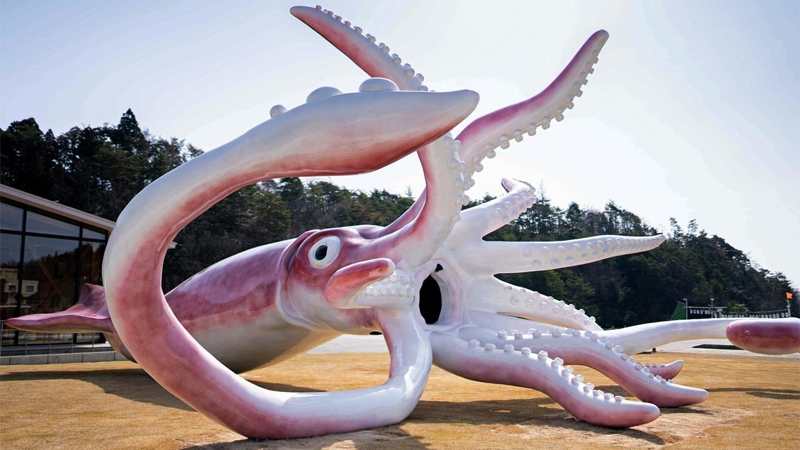|
The seaside town says the squid is part of a strategy to boost tourism following Covid-19

Alex Chapman | Planet Attractions | 27 May 2021

 The now infamous squid is being used to draw in tourists Credit: Handout Noto Town The now infamous squid is being used to draw in tourists Credit: Handout Noto Town
A town in Japan has used part of an emergency Covid-19 relief fund to erect a giant statue of a squid.
Noto, which is a seaside town on the east coast of Japan, is known for its flying squid, which is considered a local delicacy. In honour of the squid and in an attempt to drum up tourists, the city chose to spend ¥25m ($228,500, €187,250, £164,200) to construct the colossal 42 metre statue (43 feet).
Whilst there was no requirement for the emergency fund to be used on relief efforts for the pandemic, the local administration has received some criticism for utilising money in such a way. Japan is currently experiencing another surge in COVID-19 cases, though numbers are low in Noto.
A spokesperson for Noto told Fuji News Network that the statue is being used as a way to increase tourism to the town and to promote a local attraction.
Japan, like many countries around the world, have seen their tourism industry suffer because of the pandemic. They were scheduled to host the 2020 Summer Olympics, now rescheduled for the summer of 2021 with no international fans.
The financial losses due to the lack of international fans are estimated to be roughly ¥200bn (US$1.8bn, €1.48bn, £1.3bn). This is according to Takahide Kiuchi, an en executive economist at Nomura Research Institute.
Visitor attractions
|
|






Supplier Showcase 2025: The biggest attractions projects landing worldwide this year
|